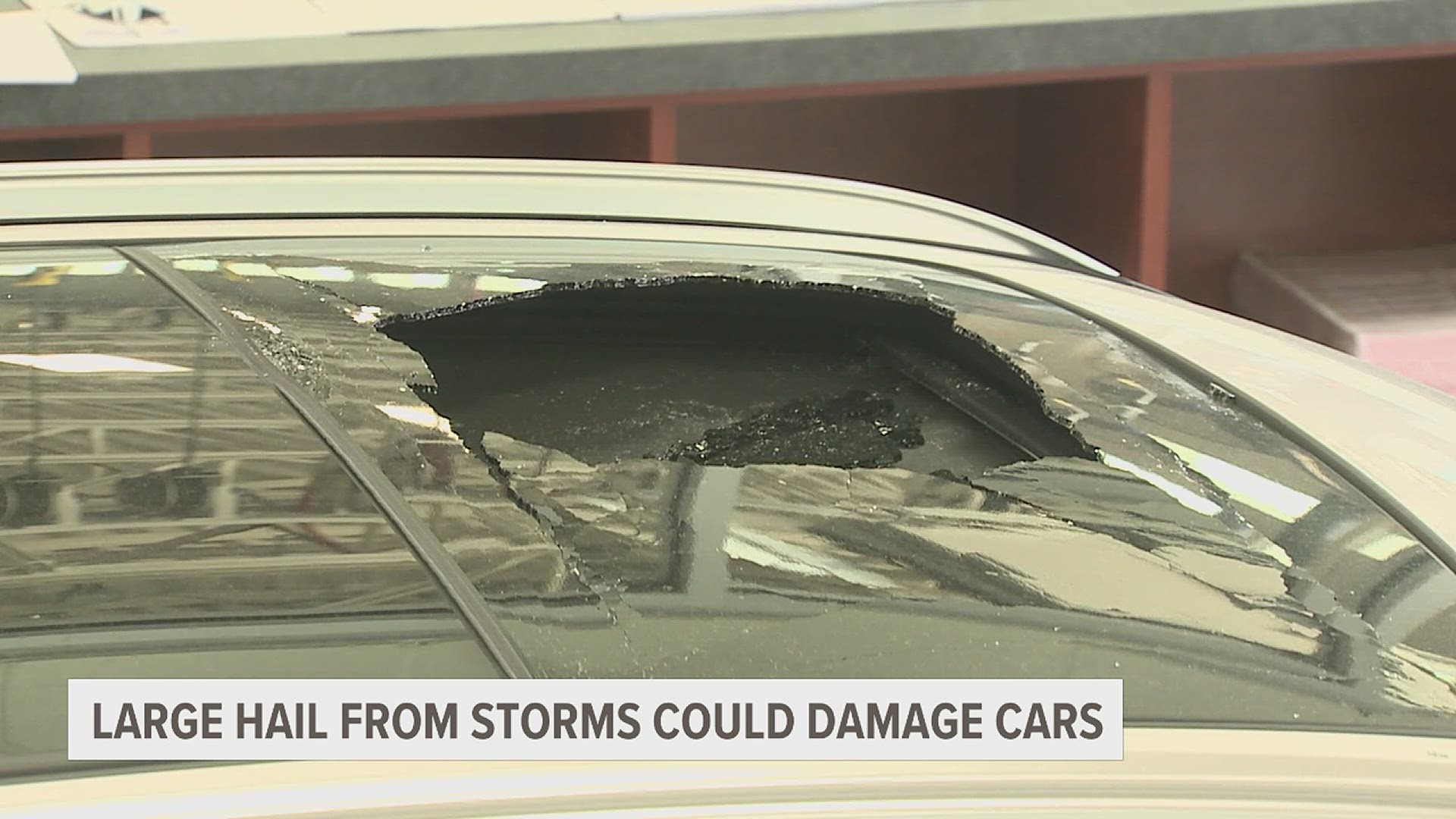ANNAWAN, Ill. — Severe storms tore through much of northern Illinois Tuesday evening, causing damage to homes, other buildings and vehicles.
The National Weather Service confirmed an EF-1 tornado touched down about four miles west of Annawan around 5:56 p.m. During the twister's eight minutes on the ground, it destroyed a shop in its path and flipped over a semi on Interstate 80, before dissipating around 6:04 p.m.
As people start to pick up the pieces, many scammers use the opportunity to take advantage.
"It's important that all consumers and homeowners are very careful. Because when we're vulnerable after storms, that's when the scam artists come and chase us down," said Chris Coleman, president for the Better Business Bureau serving Iowa and the Quad Cities. "We encourage everybody to be diligent and wise and follow tested tips that will keep them safe."
The Better Business Bureau (BBB) and the American Automobile Association (AAA) recommend that your insurance company be your first call to learn about what your policy does, or doesn't cover. It's important to remember that each policy is different and touching base can help you plan.
What kinds of scams should people look out for after severe weather?
Coleman said there are two primary ways people fall victim to scams after storms, specifically when looking for someone to make repairs.
- The contractor will tell you not to worry about insurance and that they will take care of it for you. Coleman said this often never works in the customer's favor, adding that you want to be a team with your insurance company.
- The contractor will create a sense of urgency and make you feel pressured to sign with them immediately. For example, they'll say your neighbors have already signed up and the longer you wait, the longer it will take for repairs to happen. Coleman recommends taking your time when choosing a contractor and not jumping at the first opportunity.
How can I avoid being scammed after severe weather?
The most important thing to avoid being scammed after severe weather, according to Coleman, is to take your time finding a contractor. Talk to friends and neighbors to see who they've had success with. He also recommends shopping around for bids and not jumping at the first offer. The BBB even has a database where you can look at numerous contractors in the area to see what experiences other consumers have had.
Coleman also recommends checking to make sure that the worker is local. He says many scammers will travel to areas that just experienced severe weather as a way to capitalize on the sense of urgency.
Lastly, Coleman has seen people pay too much in advance just to secure a contractor.
"You should find a contractor that is going to be there for the long haul, that has a proven track record," he said. "That means they'll get started and charge you when they start expending funds. (For) most contractors, you got to pay for some of it as the project wears on. But you shouldn't pay anybody today for work that's promised to be done in March or April."
What to do if your vehicle was damaged by severe weather
As mentioned earlier, it's best to call your car insurance company first to learn about what your individual policy covers. AAA recommends taking photos of any hail damage that was done to document it.

